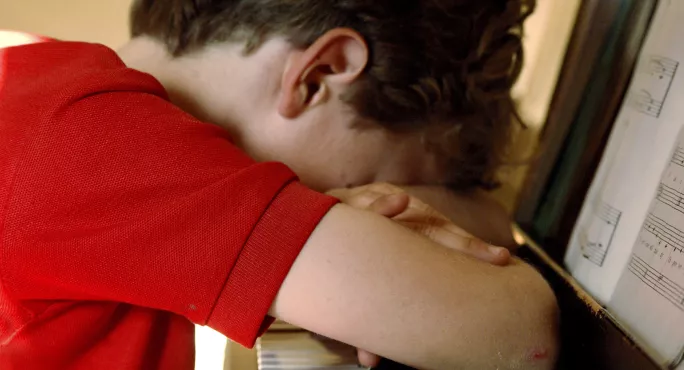- Home
- Student refusing to work? It could be fear of failure
Student refusing to work? It could be fear of failure

The 19th-century American philosopher and psychologist William James is reported to have said that “With no attempt there can be no failure; with no failure no humiliation.”
I wish I had learned about the avoidance of failure and the lengths to which some children will go to protect themselves from this far earlier in my teaching life than I actually did.
I can painfully recall many situations from my first few years in a comprehensive where I failed to recognise that in front of me was a child who would do almost anything, no matter how inappropriate and no matter the consequences, to avoid doing what I wanted them to do because they judged failure to be a near certainty.
Quick read: Five tips for behaviour management in a heatwave
Quick listen: Why consistency in behaviour rules can be harmful
At the same time, I quit something that I, a fully grown adult, had worked for years to achieve in the full knowledge that I felt the chances of failure were too high and, even now, I still think about that cowardly decision every single day.
When I was the headteacher of a special school, many of the children who came to us from mainstream secondary schools because of behaviour issues were expert failure avoiders.
They would walk out of lessons or fail to arrive in the first place. They would rip up work at the first sign of a mistake, or proclaim loudly “I’M NOT FUCKING DOING IT!”
The extreme language may shock, but it has the desired result: to get out of this situation as quickly as possible. Highly inappropriate but exceptionally effective.

Many of them had spent long periods experiencing feelings of inadequacy or failure and they were sick of it. This is not to blame their teachers.
They were fed up with their mates seemingly mastering things with ease while they were still struggling with what looked like the basics and they weren’t keen on advertising this to everyone.
Shame
I’ve written before about the responses that shame can induce in children.
You can see how William James’ quote above suggests that children may exhibit similar behaviours by trying to protect themselves from failure; withdrawing by walking out of a lesson, attacking others by screaming at us to leave them alone, attacking themselves by ripping up their work, or by avoidance through simply not turning up to your lesson in the first place.
Sanctions as deterrents
In such situations, using sanctions as a deterrent is likely to be less effective, as they are probably preferable to the task at hand. The severity is irrelevant; summoning the headteacher or threatening exclusion may indeed be welcome because these provide an escape from what the child is desperate to avoid.
I’m not saying that sanctions shouldn’t be applied in these situations, but they won’t do the preventative work that you normally expect from them.
A sense of achievement
There needs to be a concerted effort to help children feel a sense of achievement in your class, no matter how small. Children will sense when they are being patronised, so the recognition of progress and of success needs to be genuine and proportionate, but also built on regularly.
Each and every time there is success, the threat (for that is how it is perceived by the child) of failure reduces, and the chances of the child being prepared to have a go increase. This is a positive feedback loop and improves the child’s sense of self-efficacy.
Safety in failure
The more I worked with this phenomenon as a headteacher, the more I saw it as our role to ensure the children felt that our classrooms were places where it was safe to have a go.
Safe because, although failure, struggle and persistence were expected daily occurrences, the children needed to be convinced that they would be met with unstinting support.
This categorically did not mean doing it for them. Eventually I summed this up to the children, colleagues and parents in a simple way: “We’re here to catch them, not catch them out.”
Jarlath O’Brien is a headteacher and the author of Better Behaviour - a guide for teachers and works in special education in London. He tweets @JarlathOBrien
Keep reading for just £1 per month
You've reached your limit of free articles this month. Subscribe for £1 per month for three months and get:
- Unlimited access to all Tes magazine content
- Exclusive subscriber-only stories
- Award-winning email newsletters



